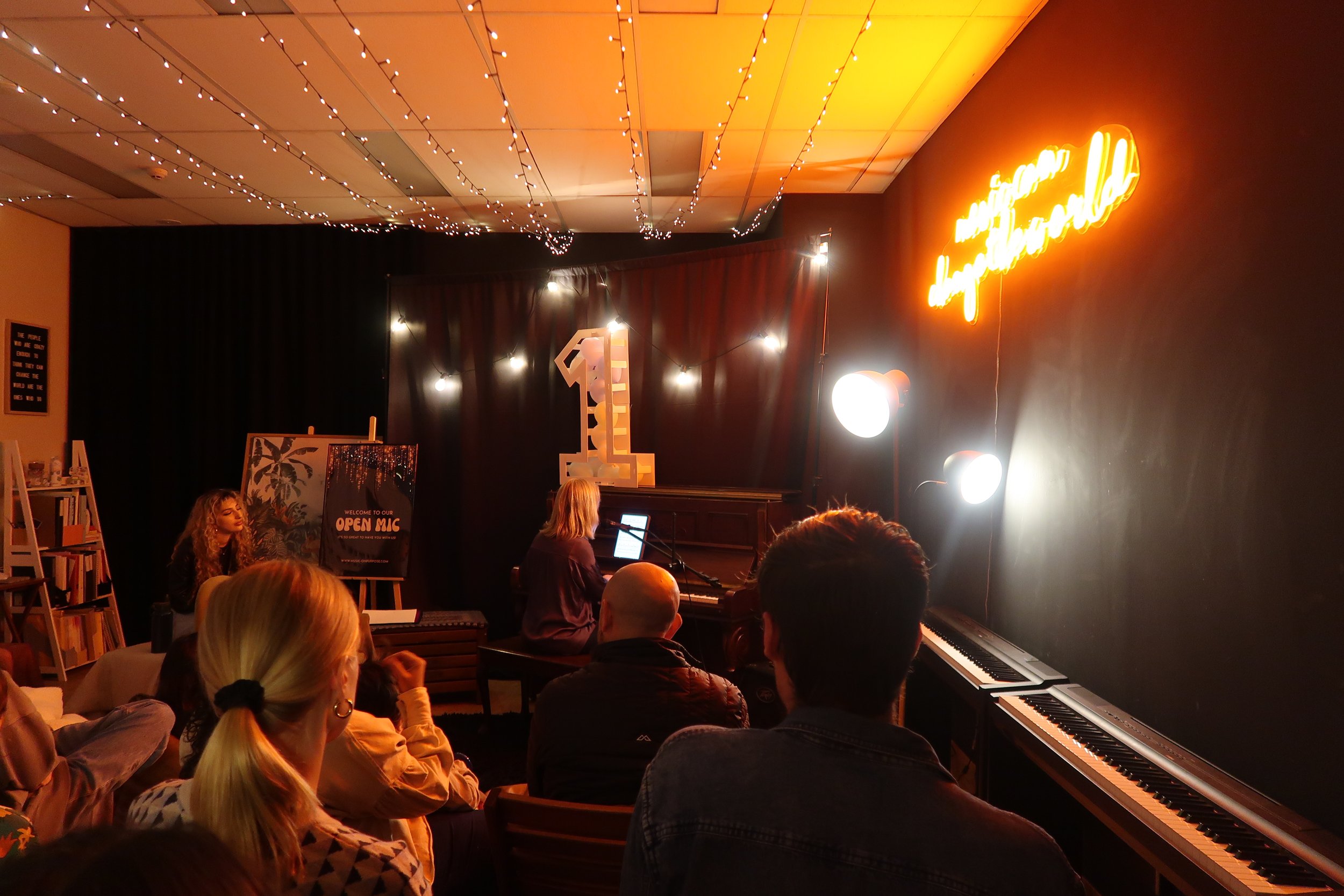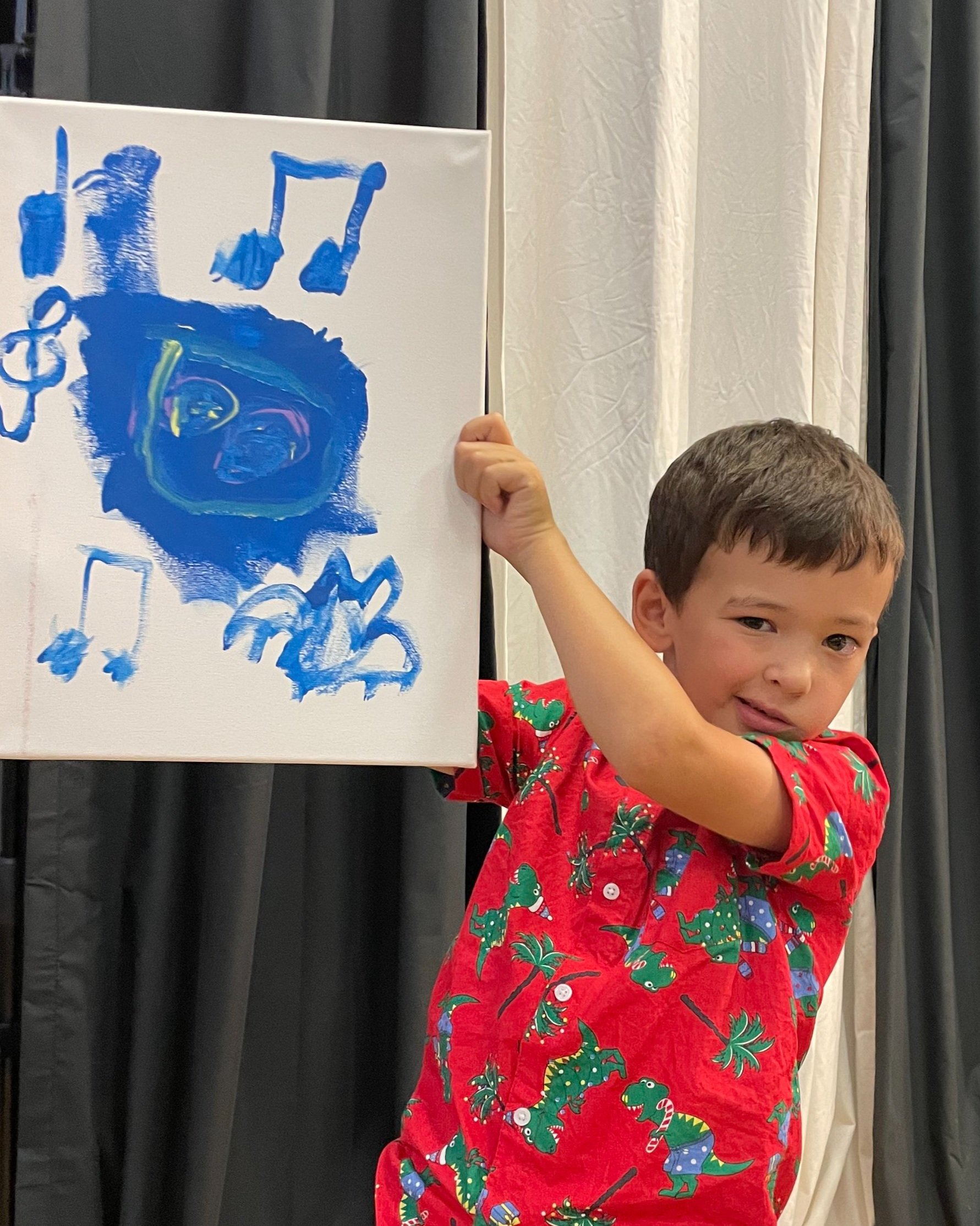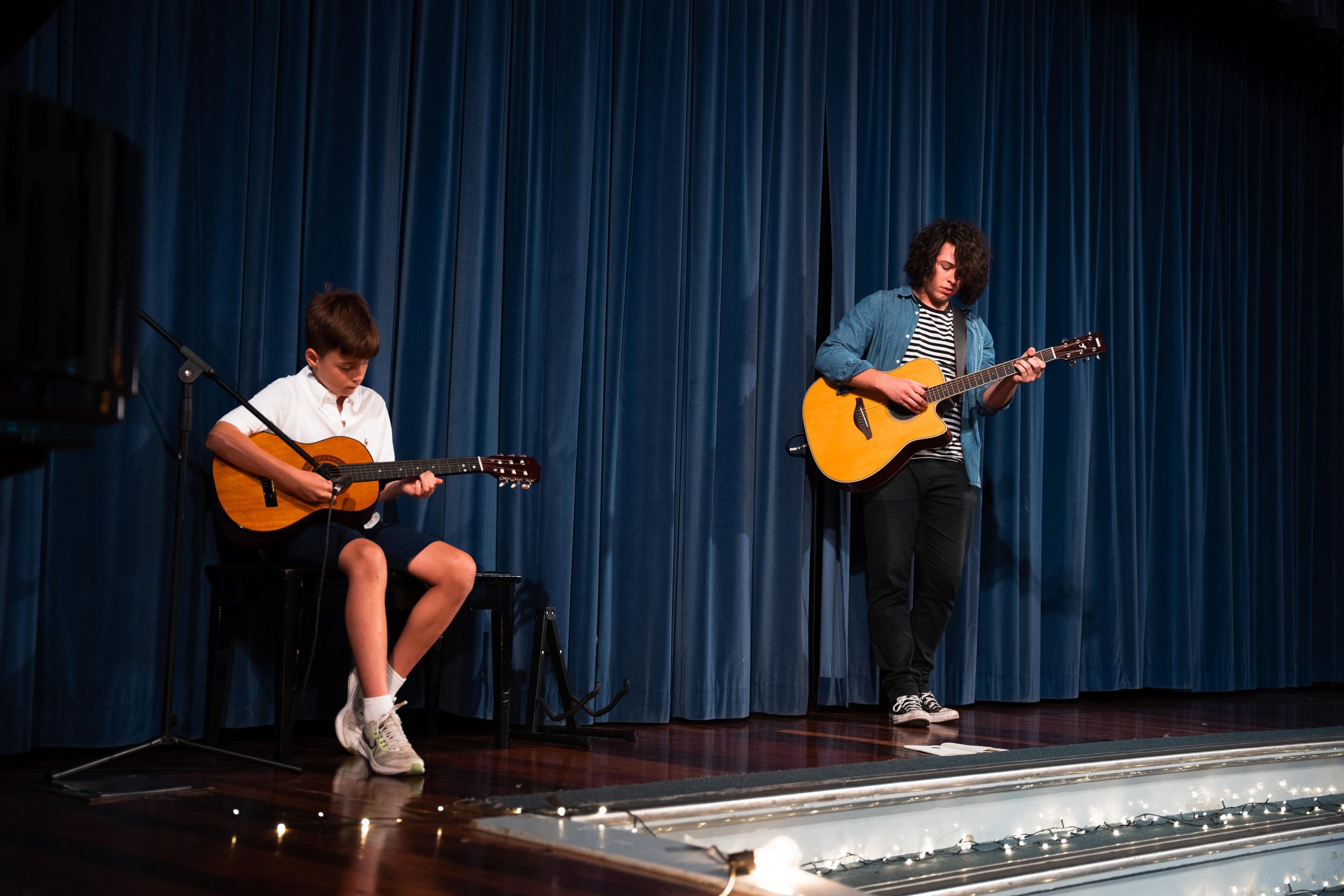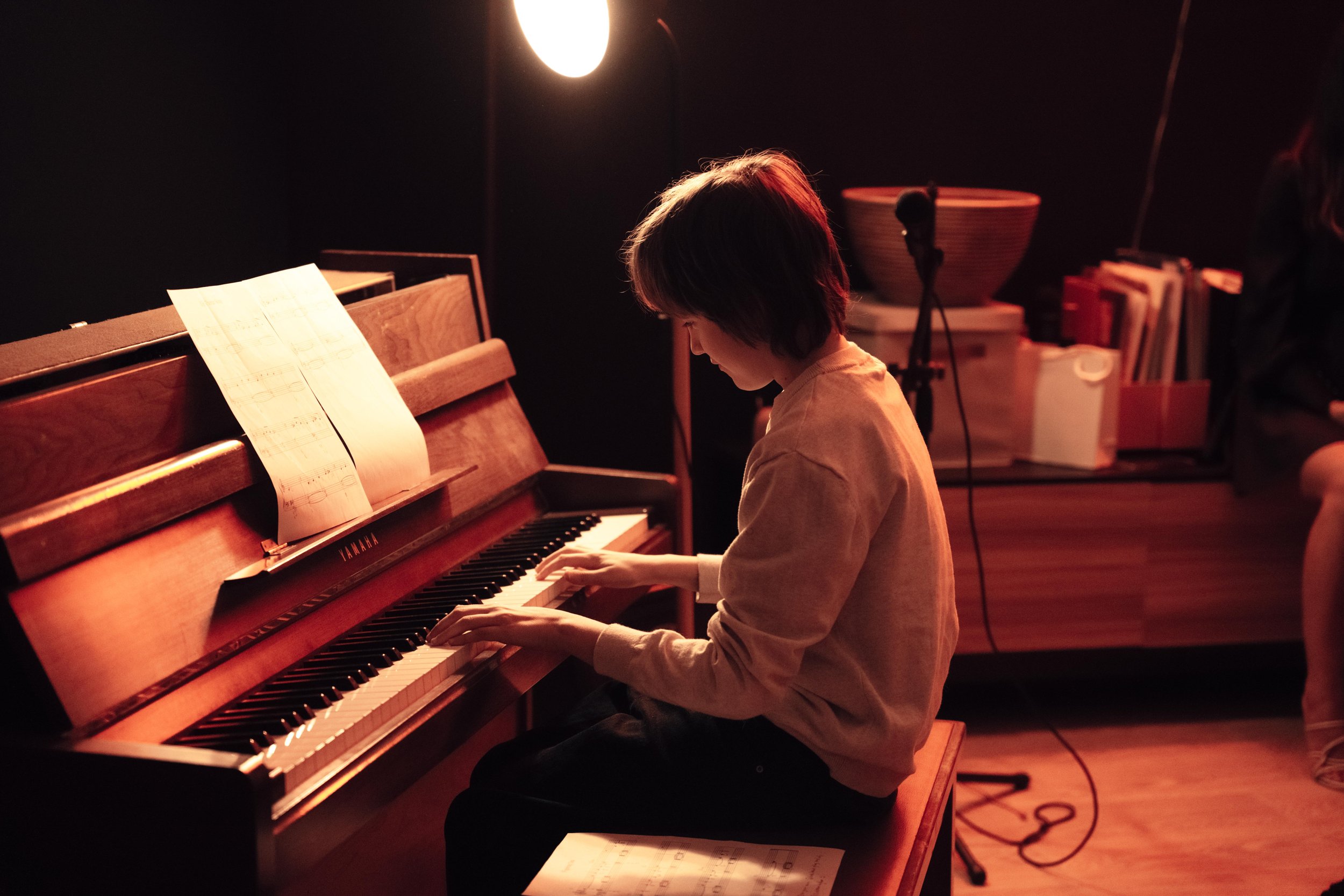Our Blog
Passionate about music, creativity and how it links to our mindset, mental health and mood? Here are some articles that you might like!
What’s the Difference Between Repertoire vs. Comprehensive AMEB Exams?
If you're preparing for AMEB music exams, you've probably heard of the Repertoire and Comprehensive exam options. While both assess musical performance, they focus on different areas of musicianship. Choosing the right exam can make all the difference in your (or your child’s) learning journey. so here’s a breakdown to help you decide.
What are the Benefits of Learning Music in a Group Class?
Unlike individual lessons, where a student may feel isolated in their learning process, group lessons create a dynamic setting that encourages interaction and collaboration. This interaction helps students to learn from one another, share experiences, and celebrate achievements collectively.
How to Choose the Right Song to Learn in Music Lessons
Experiment with a variety of musical genres, such as classical, pop, rock, or jazz. Exposing yourself to different styles can broaden your musical understanding and keep the learning process engaging.
Basic Guitar Accessories to Consider Investing in When Learning the Guitar
As you embark on your journey to become a guitarist, it's important to equip yourself with the right tools and accessories to enhance your playing experience and keep your instrument in top condition. Here, we'll delve into the essential guitar accessories you'll need and why they're crucial for your musical endeavors.
How to Find the Right Guitar Teacher for Yourself or Your Child
Learning the guitar is an exciting journey filled with endless possibilities, and having a qualified teacher by your side can make all the difference. Here, we'll explore the benefits of having a guitar teacher and offer guidance on how to find the right one for your musical aspirations.
Why You Should Consider Learning the Guitar as Your First Instrument
Guitar is an incredibly popular instrument to start with — a lot of beginners love learning the guitar because it is so versatile, portable, affordable and allows opportunities for new social engagements.
If you start learning guitar, we know you'll come to appreciate these qualities even more, and they will undoubtedly enrich your musical experiences along the way.
The Traits of a Highly Sought-After Music Teacher
ust because you’re good at something doesn’t mean you’re going to be good at teaching it. Just because someone is great at maths doesn’t automatically qualify them to be an amazing maths teacher.
When it comes to music, it’s important to find the right teacher for you. This is especially the case for music, as it extends beyond maths, english, and any other skill. Music can be personal. It can be emotional.
The relationship a student has with their teacher can profoundly impact their confidence, motivation and love for the instrument.
Things you Should Consider When Learning Music for the First Time as an Adult
Learning music as an adult can be a fulfilling experience, but it can also be challenging. Remember, learning music is a journey, not a destination. Enjoy the process and have fun! Here are some things to consider when embarking on this journey.
How Can Music Help us Ease and Manage Anxiety?
Anxiety is a human emotion and a mental health concern that can be experienced by so many people. Though the impact of anxiety can manifest differently in various people, it’s important to find tools to manage our thoughts and emotions. Music is one of the many powerful tools that can be used to ease anxiety. Whether through listening to calming music, playing an instrument, or singing, there are many ways in which we can use music to help us cope with stress and anxiety.
Did you know that Playing Music Help Develop Your Social Skills?
Playing music can provide numerous opportunities to build social skills, from collaboration and communication to empathy and performance. These skills can be valuable in a wide range of settings, from school and work to personal relationships and social interactions.
How Do I Find the Right Music Teacher? Here are 6 Tips to Know You’ve Found a Great Teacher
Overall, finding the right music teacher can take a bit of time, research and effort, but it's totally worth it. It’s important to go the extra mile to find the right music teacher who can help you achieve your musical goals and guide you in your learning journey. Finding the right music teacher can make a big difference in your learning experience and overall progress as a musician.
7 Tips to Become Performance Ready as a Musician
Performing your music is an incredible milestone to celebrate. It takes a lot of courage, confidence, discipline and dedication to prepare for a music performance. It is no small thing.
By practicing regularly, memorising your music, visualizing the performance, and taking care of yourself, you can become performance-ready as a musician and feel confident and prepared when it's time to take the stage.
7 Tips for Making Music Practice a Fun, Enjoyable, Sustainable Part of Your Daily Routine
“How do I get my kid to practice their instrument?” We get asked this question all the time.
It is so normal for music students to feel unmotivated to practice at times. Factors like age, the piece they’re learning and the busyness of their week can all have an impact on students’ lack of motivation o practice. Here are several practice tips you can use to get motivated and stay on track.
How can Playing a Musical Instrument Benefit our Emotional Wellbeing and Mental Health?
Playing music can be a powerful tool for emotional regulation as it equips us a variety of tools to managing emotions which can promote our well-being. Playing music can also improve our mood, boost our endorphins and help us relax. It’s a different kind of therapy that is accessible to anyone, right at your fingertips.
5 Incredible Ways Playing Music can Improve Your Brain Health
Learning to play music has been shown to have numerous cognitive benefits. Just like how we go to the gym, run around the block or stretch to keep our bodies healthy, learning to play a musical instrument has incredible benefits when it comes to keeping our brain healthy.
How I know which piano to buy?
How I know which piano to buy? Where do I start? We get asked this question all the time.
Overall, choosing the right piano for you, or your child requires careful consideration of age, skill level, preferences, as well as your budget and available space. By taking the time to find the right instrument, you can develop a love of music that will last a lifetime.
How Self-Directed Learning Can Bring More Fulfilment When Playing a Musical Instrument
How can we keep learning music fun? Just as music is an art form, learning can be seen as an intricate, multifaceted art form too. Growing in our own understanding of how we learn best and applying these concepts to our journey with playing the piano, guitar, or singing can be an effective way to keep lessons engaging, meaningful and fulfilling.
What are the Benefits of Learning a Musical Instrument in a Private Lesson Setting?
Private music lessons, whether it be piano, guitar or singing — come with a whole heap of advantages. This goes for everyone - despite age, background or prior experience.
If you’re considering getting your child to start learning music, you might wonder if there is a point of paying for private lessons no top of the school curriculum? Are there really any added benefits from taking private lessons in addition to music class?
And if you’re beyond your schooling years — you may be considering picking up a creative or active hobby. So, why music? What’s the benefit? Are there any benefits?
Our answer is simple, and plain. Yes. There are incredible benefits to receiving weekly private music lessons outside of a conventional school, or online platform setting.
The surprising benefits of learning to play an instrument
There have been many studies conducted, examining the surprising benefits of listening to and playing music. Here’s what some studies have found about the benefits of learning an instrument.
The Difference Between Learning an Instrument as an Adult vs. as a Child
Children seem to absorb things like a sponge.
Whether it be learning a language, a new skill, joining a new sport, or picking up a musical instrument for the first time. Children learn. They often learn fast. It’s what they do.
You teach them something new? They absorb it. They believe it. Mostly because they lack the context, prior knowledge and experience to argue against it. Children are often dependent learners.
But why does learning seem so much harder when we are adults?




















